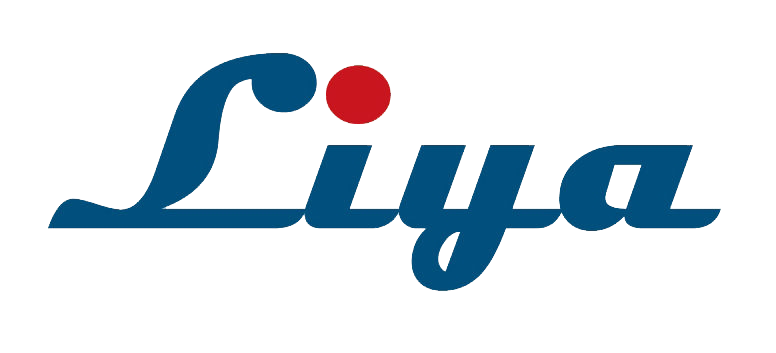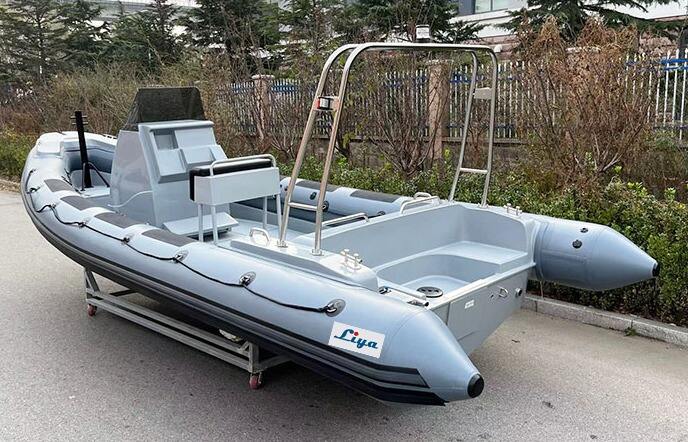Liya Boats' Commitment to Quality Control Excellence
Why Marine Quality Standards Matter
Marine quality standards are indispensable in ensuring safety and performance within the maritime industry. They serve as a benchmark for manufacturers, guiding the production of vessels that can withstand various environmental challenges. By adhering to these standards, companies like Liya Boats significantly reduce the likelihood of accidents, thereby enhancing customer trust. A study highlighted that vessels constructed under stringent quality guidelines exhibit a marked reduction in failure rates, contributing to their extended operational longevity. For manufacturers, maintaining a robust quality control process is not just about compliance—it's a strategic advantage that adds to their reputation and brand reliability.
Aligning with Global Safety Expectations
Liya Boats takes pride in aligning its production processes with internationally recognized safety standards, including the much-revered ISO standards. By conducting regular audits and updates, they ensure ongoing compliance and adapt to evolving regulatory landscapes. Notably, Liya Boats doesn't just meet these expectations—they exceed them, which strengthens their position in the fiercely competitive marine market. By setting higher safety benchmarks and consistently achieving them, Liya demonstrates its leadership in quality control, thereby increasing its attractiveness to discerning buyers who prioritize safety and durability in their purchasing decisions. This proactive approach affirms Liya's dedication to delivering world-class marine vessels built to global safety expectations.
Stringent Manufacturing Protocols
ISO 9001 & CE Certification Compliance
ISO 9001 and CE certifications are essential pillars in maintaining high-quality management systems within the manufacturing sector. These certifications represent a commitment to quality, efficiency, and continual improvement, which are crucial for companies looking to minimize errors and defects. Achieving ISO 9001 and CE certifications requires detailed documentation and regular internal reviews to ensure adherence to established protocols and standards. Statistics show that businesses holding ISO certifications report 20% fewer product returns, indicating a significant improvement in product quality. Such compliance not only enhances operational efficiency but also builds trust with consumers, reducing the likelihood of dissatisfaction or returns.
ABYC Standards Implementation
The American Boat and Yacht Council (ABYC) sets forth essential standards that are pivotal to the safe construction of boats. These standards guarantee that safety features meet stringent marine industry criteria, minimizing potential risks to users. By adhering to ABYC standards, manufacturers like Liya Boats ensure their products meet or exceed safety expectations. Continuous staff training on the latest ABYC updates is crucial for maintaining compliance and integrating new safety innovations. This commitment stabilizes the reliability of products like rigid inflatable boats and enhances the overall safety of inflatable rescue boats, thus promoting customer trust and satisfaction.
Craftsmanship Validation Processes
Craftsmanship validation is a critical element in ensuring high-quality assembly, particularly in the competitive marine industry. Each vessel undergoes rigorous craftsmanship validation processes to verify the precision in assembly and quality of materials used. Expert craftsmen meticulously review every phase of construction, ensuring that each boat upholds Liya Boats' promise of quality. Documentation of these checks provides a traceable record, facilitating continuous quality improvements and accountability. This meticulous approach to craftsmanship not only assures a superior product offering but also solidifies Liya's reputation in the market for producing reliable rib boats for sale, including the highly efficient RHIB boats.
Premium Material Selection Criteria
Military-Grade HYPALON/PVC Fabrics
The use of military-grade HYPALON and PVC fabrics in boat construction ensures exceptional durability and resilience. Known for its ability to withstand harsh environmental factors like UV rays and chemical exposure, HYPALON is the preferred material for robust inflatable boats like those found in Liya’s range. When accessing RIB boats for sale, selecting these high-quality fabrics guarantees that the boats maintain structural integrity even in extreme conditions. Liya Boats prioritizes materials that meet stringent performance criteria, ensuring longevity and user confidence in every inflatable rescue boat produced.
Aircraft-Grade Aluminum Hull Construction
Aircraft-grade aluminum is a pivotal material in Liya's hull construction due to its ability to provide maximum strength with minimal weight. This high-performance material not only enhances the durability of RIB boats but also offers remarkable resistance to corrosion. Industry data underscores the benefits, noting a potential 30% reduction in maintenance costs when aluminum is utilized. This makes it a cost-effective choice for building boats that need to endure rigorous maritime environments, underscoring aluminum's role in ensuring the efficiency and reliability of each RHIB boat.
Fiberglass Reinforcement Techniques
Fiberglass reinforcement is integral to enhancing the strength and impact resistance of boats, making it essential in crafting high-quality RIB boats. By optimizing the application process, manufacturers can reduce production times without compromising on quality, thereby improving both performance and safety features. Industry analysis supports this, highlighting that reinforced hulls significantly enhance operational efficiency and safety. Thus, integrating fiberglass techniques into hull construction ensures that each boat not only withstands harsh conditions but also delivers superior performance in demanding marine scenarios.
Comprehensive Quality Testing Procedures
Ensuring the quality and reliability of inflatable boats requires rigorous testing procedures. This comprehensive approach encompasses several distinct methods, each pivotal in assessing and enhancing boat integrity before it reaches the consumer.
Hydrostatic Pressure Testing
Hydrostatic pressure testing is essential for evaluating a boat's resilience against water penetration. By subjecting the boat to high-pressure water conditions, this test identifies potential leaks and ensures the vessel's watertight properties. Such practices are vital because studies have shown that rigorous pressure testing can reduce product failures by up to 40%. By preemptively addressing these potential issues, manufacturers significantly enhance a boat's reliability and market readiness.
Emergency Flood Simulation Trials
Emergency flood simulation trials are conducted to assess a boat's stability during unforeseen flood-like situations. By mimicking such conditions, these trials help in designing boats that can maintain stability and provide safety to users in real-world scenarios. Over the years, documentation has highlighted improvements in emergency response designs, evidence of the critical role these simulations play in boat manufacturing. Preparing a vessel for unexpected scenarios not only fortifies its design but also ensures user safety.
Real-World Performance Validation
Real-world performance validation is crucial for verifying that boats operate optimally under practical conditions. This involves testing the vessel's performance across various speeds, maneuvers, and load capacities to ensure that it meets user expectations. Reports affirm that these validation processes have notably increased customer satisfaction, as they confirm that the boats can perform as intended when in actual use. This further enhances user confidence, affirming the product's reliability and overall quality on the market.
Customer-Centric Quality Verification
Warranty-Backed Performance Guarantees
Providing warranty-backed performance guarantees is a cornerstone of instilling confidence in potential buyers and ensuring long-term satisfaction. This assurance not only reflects the company's commitment to delivering quality and reliability but also acts as a powerful marketing tool that can influence purchasing decisions. According to market analysis, warranty offerings can significantly boost sales conversions by up to 25%, demonstrating the value of this commitment to both sellers and buyers alike. The presence of a solid warranty policy signals to customers that a company stands behind its products, ready to address any potential issues proactively.
User Feedback Integration Loops
Integrating user feedback into the quality verification process is essential for enhancing product development and maintaining a competitive edge. By closing the loop with regular surveys and customer interactions, companies can continuously inform their improvement and innovation efforts. This feedback loop not only refines product quality but also fosters stronger customer engagement. Case studies have shown that brands actively engaging in feedback processes are less likely to experience high customer attrition rates, highlighting the importance of listening and adapting to consumer needs. This approach makes companies more responsive and aligned with market demands.
Resale Value Preservation Strategies
Focusing on robust quality assurance can substantially impact the resale value of manufactured boats, securing their market position. By providing customers with maintenance tips and proper care instructions, manufacturers can enhance the lifespan of their boats, thus improving resale potential. Statistics underscore that quality assurance can boost resale value by as much as 30%, offering a tangible return on investment for buyers. Such strategies not only bolster customer satisfaction and loyalty but also strengthen a brand's reputation for delivering enduring, high-quality products. This focus on quality directly translates into increased buyer confidence and market advantage.
FAQ Section
Why are marine quality standards important in boat manufacturing?
Marine quality standards ensure safety and performance by providing guidelines that help manufacturers produce vessels that withstand environmental challenges. They reduce the likelihood of accidents, enhance customer trust, and improve operational longevity.
What certifications do Liya Boats comply with?
Liya Boats comply with ISO 9001 and CE certifications. They also adhere to ABYC standards to guarantee safety features meet stringent marine industry criteria.
How does Liya Boats ensure the quality of their materials?
Liya Boats use premium materials such as military-grade HYPALON/PVC fabrics and aircraft-grade aluminum for hull construction. They prioritize materials that meet stringent performance criteria for durability, resilience, and corrosion resistance.
Why is CNC cutting technology used in boat manufacturing?
CNC cutting technology ensures precision manufacturing by minimizing human error and optimizing material utilization, leading to improved dimensional accuracy and reduced waste.
What role does user feedback play in Liya Boats' quality assurance?
User feedback is integrated into the quality verification process to enhance product development and maintain a competitive edge, fostering customer engagement and refining product quality.

